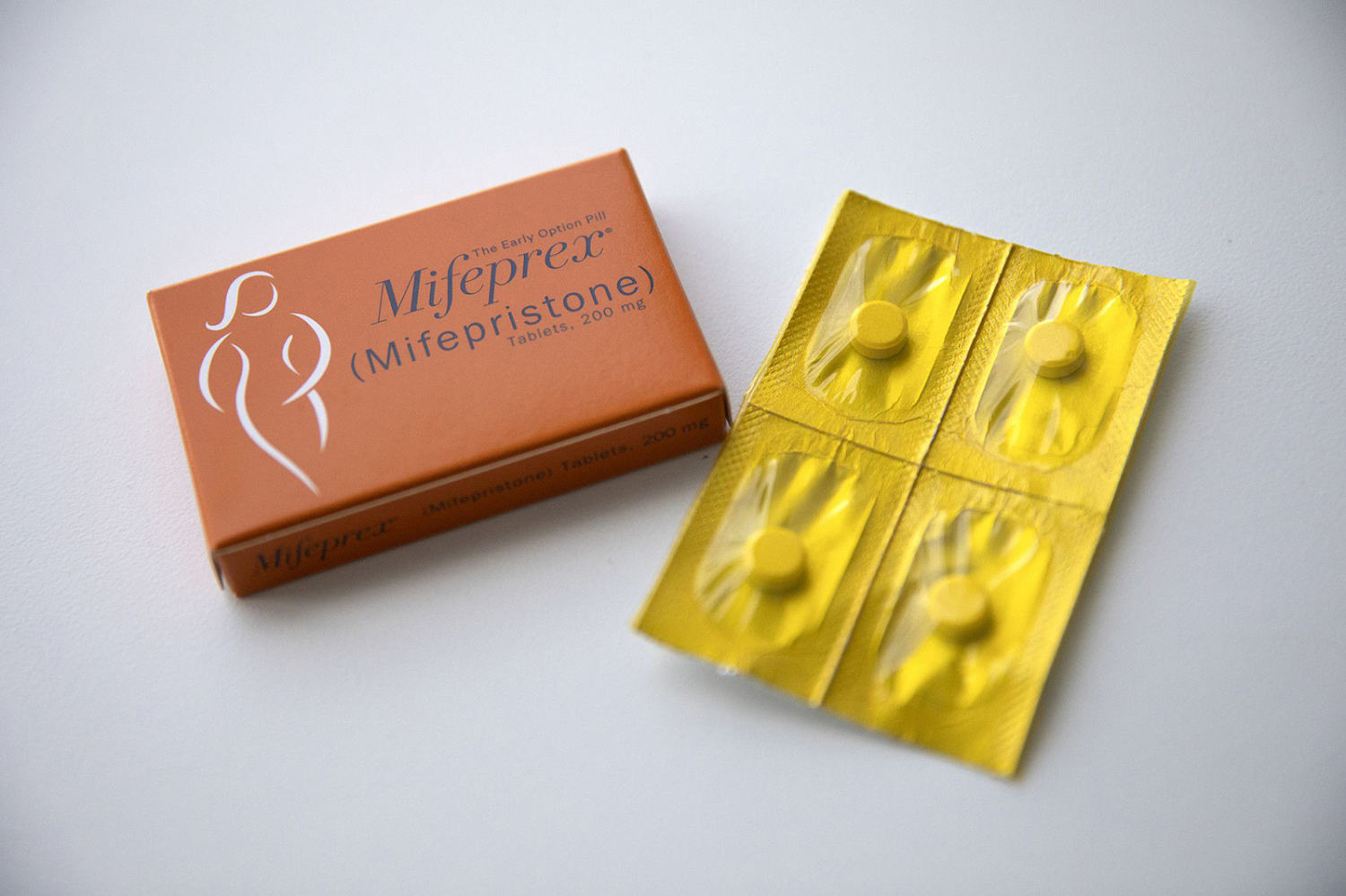
WASHINGTON — The Biden administration asked the Supreme Court on Tuesday to maintain broad access to the drug most commonly used for medication abortions, arguing that restricting its availability would harm women across the country.
Both the administration and the drugmaker Danco filed briefs laying out their arguments in defense of several Food and Drug Administration decisions that, among other things, made the mifepristone pill available by mail. Danco makes the brand version of the pill, Mifeprex.
“The loss of access to mifepristone would be damaging for women and healthcare providers around the nation,” Solicitor General Elizabeth Prelogar wrote in the government’s brief.
“For many patients, mifepristone is the best method to lawfully terminate their early pregnancies. They may choose mifepristone over surgical abortion because of medical necessity, a desire for privacy, or past trauma,” she added.
Prelogar said the FDA approvals were supported not just by scientific studies but also by “decades of safe use of mifepristone by millions of women in the United States and around the world.”
Oral arguments have not yet been scheduled. They are set to be held in early spring, with a ruling expected by the end of June.
The challenge to mifepristone approval was brought by a group of doctors and other medical professionals represented by the conservative Christian legal group Alliance Defending Freedom. They say the FDA’s 2000 approval was flawed, as were later decisions that made the drug easier to access, in part because they failed to take into account safety risks to women. The FDA and Danco say serious adverse effects are “exceedingly rare.”
In a separate brief, lawyers for Danco said the questions raised in the case “are not hard under existing precedent” and “do not ask the court to wade into a politically charged debate around abortion.”
The appeals court ruling under review “threatens to destabilize the pharmaceutical industry, which relies both on FDA’s ability to make predictive judgments and on courts not second-guessing those scientific judgments,” the lawyers wrote.
The challengers will file their brief in the coming weeks.
The justices have already intervened once, in April, when they blocked in full a decision by U.S. District Court Judge Matthew Kacsmaryk in Texas, who invalidated the FDA’s original approval of the drug more than 20 years ago. At that time, conservative justices Clarence Thomas and Samuel Alito said they would have allowed part of his ruling to go into effect.
Kacsmaryk’s decision threatened access to the pill, including its availability by mail, but the Supreme Court order resulted in its remaining available as normal while the litigation continued.
Since the Supreme Court’s action in April, the case has moved through the appeals process, and the scope has narrowed somewhat to focus on later FDA decisions that loosened restrictions and not the original 2000 decision to approve the pill.
When the court agreed last month to hear the Biden administration and Danco appeals, it turned away a separate petition seeking to challenge the 2000 approval.
The Supreme Court will focus on FDA actions from 2016 onward that made it easier to access the pill, including the initial 2021 decision that made it available by mail, which was finalized last year.
Also under review are the 2016 decisions to extend the window in which mifepristone could be used to terminate pregnancies from seven weeks’ gestation to 10 weeks and reduce the number of in-person visits for patients from three to one. In another 2016 move, the FDA altered the dosing regimen, finding that a lower dose of mifepristone was sufficient.
In a separate development in the case, three Republican state attorneys general have sought to intervene in support of the challenge. Representing Missouri, Idaho and Kansas, the state officials are trying to allay concerns that the original plaintiffs did not have legal standing to sue, an argument that Prelogar pressed in her brief.
The standing issue is important, because in one scenario the court could simply dismiss the challenge on those grounds, meaning it would not have to decide the meaty questions about FDA approval.
If the court were to allow the states to participate, it would mean the standing issue would not be a problem, the state attorneys general said in their own court filing.
The FDA-approved regimen for a medication abortion involves two drugs: mifepristone, which blocks the hormone progesterone, and misoprostol, which induces contractions. A majority of abortions in the U.S. are carried out using the pills.
The mifepristone dispute is one of two abortion cases before the justices.
In the other, the court will decide whether a provision of Idaho law that could punish doctors who perform abortions in emergency situations conflicts with a federal law concerning medical care standards that applies to any hospital that receives federal funding via the Medicare program.
